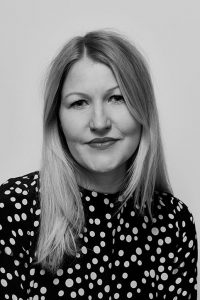
We’ve all been there. We’ve all had to work our way up, doing jobs we didn’t plan on doing to get to where we want to be. It’s not glamorous. Most of us don’t just land ourselves an internship at our dream company straight after graduating, like Emily in Paris would have us believe.
When I first started out, I pinpointed renowned furniture brand, Established & Sons, as the place that I wanted to work. I applied for a receptionist position, which I didn’t get, but they allowed me to stay on temporarily until they filled the role. Then, after months of hard work and grit, I eventually got promoted to Head of Product Development.
How do you turn that starter role into the job you really want then? It’s about making yourself indispensable (which doesn’t mean just saying ‘yes’ to everything).
Immerse yourself in your industry. Listen to the conversations colleagues are having, the topics that are being discussed. In remaining curious, I’ve never stopped learning, and this mindset means that I’ve never been fully satisfied with how something is; you can always find problems to solve.
Share articles with your colleagues and on LinkedIn. Use your spare time to do something that might help you stand out whilst also benefitting the company – there might be a talk or event on that’s particularly relevant. Showing genuine interest highlights real potential. If you’re keen to develop yourself, others will be more than happy to support and develop you too.
Being the new person isn’t a disadvantage. As someone new you can bring a fresh perspective. You might be able to spot a problem that’s been overlooked or find an unseen opportunity. Don’t be afraid to point this out, don’t settle for the answer ‘this is the way we’ve always done it’. Just make sure to do it in a way that’s constructive rather than critical and respect their expertise if they disagree.
A great way to build commercial astuteness is by looking at your competitors. What do they do well? What could they improve on? As you build up context, it’s easier to evaluate your own company’s strengths and weaknesses.
Don’t waste time comparing yourself to others, focus on what you are bringing to the table and learn to accept you won’t know everything. It’s often easy to identity your weaknesses, but how do you do the more difficult job of determining your strengths?
Think about feedback you’ve received in the past and the positive attributes people have highlighted. Note these down. It sounds obvious but having these on paper makes you remember them. Don’t be afraid to ask for feedback more frequently either, good and bad.
Consider the tasks you do every day, every week. How can you apply these strengths? Don’t be afraid to tell people directly what it is you can offer. This isn’t bragging.
Making yourself indispensable is about more than doing your job well. It’s the mindset you have. It’s that constant strive for improvement and desire to push things forward.
Be curious, learn along the way. Don’t think about where you want to get in twenty years’ time, think about the experience you have now and what you’re going to get out of it. I never had an end goal of being Executive Creative Director at Mother Design, but I knew I wanted to be somewhere I could apply my drive and love of building brands.
If you follow your passions and work hard, you will end up where you’re supposed to be.
 About the author
About the authorKirsty leads the creative output of Mother Design in London. Kirsty brings almost two decades of experience in the brand building space and has worked with an impressive multitude of clients.
Her work stretches from building award winning experiences for Google Pixel and Selfridges, rebranding large complex components of the BBC and Facebook, to working on brand building briefs for the likes of Belstaff, Hunter, Baileys, Hennessy, Jamesons and Nike.
Kirsty has learnt her craft at some of the world’s leading organisations including The Future Laboratory, Google Creative Lab, Designstudio, Scheybeler+company, Dazed & Confused as well as residing at Fabrica, Benetton’s experiential research laboratory in Italy.
